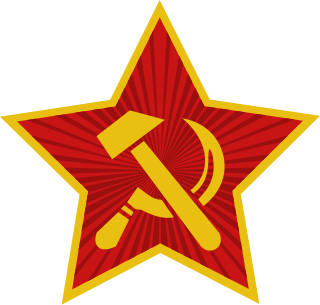
The Communist Party of Germany was a major far-left political party in the Weimar Republic during the interwar period, an underground resistance movement in Nazi Germany, and a minor party in West Germany during the postwar period until it was banned by the Federal Constitutional Court in 1956.

Council communism or Councilism is a current of communist thought that emerged in the 1920s. Inspired by the November Revolution, council communism was opposed to state socialism and advocated workers' councils and council democracy. It is regarded as being strongest in Germany and the Netherlands during the 1920s.

The Workers' Socialist Federation was a socialist political party in the United Kingdom, led by Sylvia Pankhurst. Under many different names, it gradually broadened its politics from a focus on women's suffrage to eventually become a left communist grouping.

The Communist Party of the Netherlands was a communist party in the Netherlands. The party was founded in 1909 as the Social Democratic Party (SDP) and merged with the Pacifist Socialist Party, the Political Party of Radicals and the Evangelical People's Party in 1991, forming the GroenLinks. Members opposed to the merger founded the New Communist Party of the Netherlands.

The Communist Workers' Party of Germany was an anti-parliamentarian and left communist party that was active in Germany during the Weimar Republic. It was founded in 1920 in Heidelberg as a split from the Communist Party of Germany (KPD). Originally the party remained a sympathising member of Communist International. In 1922, the KAPD split into two factions, both of whom kept the name, but are referred to as the KAPD Essen Faction and the KAPD Berlin Faction.
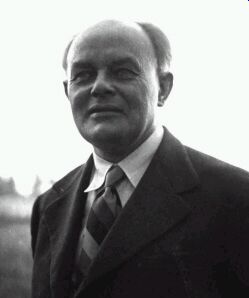
Karl Heinrich Otto Rühle was a German Marxist active in opposition to both the First and Second World Wars as well as a council communist theorist.

The Communist Workers' International or Fourth Communist International was a council communist international. It was founded around the Manifesto of the Fourth Communist International, published by the Communist Workers' Party of Germany (KAPD) in 1921.

The International Marxist Group was the name of two German Marxist groups. The first was formed in 1939, as a breakaway from the Communist Party Opposition (KPO), and was linked to the centrist Marxist International Workers Front.
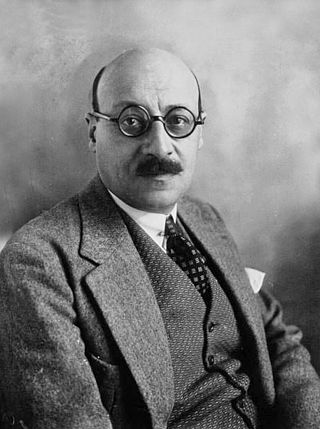
Ludovic-Oscar Frossard, also known as L.-O. Frossard or Oscar Frossard, was a French socialist and communist politician. He was a founding member in 1905 and Secretary-General of the French Socialist Party (SFIO) from 1918 to 1920, as well as a founding member and Secretary-General of the French Communist Party (PCF) from 1920 to 1922.

Jan Appel was a German revolutionary who participated in the German Revolution of 1918. He became a prominent Left Communist activist and theorist.

The Revolutions of 1917–1923 were a revolutionary wave that included political unrest and armed revolts around the world inspired by the success of the Russian Revolution and the disorder created by the aftermath of World War I. The uprisings were mainly socialist or anti-colonial in nature. Some socialist revolts failed to create lasting socialist states. The revolutions had lasting effects in shaping the future European political landscape, with for example the collapse of the German Empire and the dissolution of Austria-Hungary.

Left communism, or the communist left, is a position held by the left wing of communism, which criticises the political ideas and practices espoused by Marxist–Leninists and social democrats. Left communists assert positions which they regard as more authentically Marxist than the views of Marxism–Leninism espoused by the Communist International after its Bolshevization by Joseph Stalin and during its second congress.

The Left Party is a socialist political party in Sweden. On economic issues, the party opposes privatizations and advocates for increased public expenditures. In foreign policy, the party is Eurosceptic, being critical of the European Union and opposing Sweden’s entry into the eurozone. It attempted to get Sweden to join the Non-Aligned Movement in 1980, but did not succeed. The party is eco-socialist, and supports republicanism. It stands on the left wing of the political spectrum.
Johann Knief was a German communist newspaper editor, teacher and politician from Bremen.

The Spartacus League was a Marxist revolutionary movement organized in Germany during World War I. It was founded in August 1914 as the International Group by Rosa Luxemburg, Karl Liebknecht, Clara Zetkin, and other members of the Social Democratic Party of Germany (SPD) who were dissatisfied with the party's official policies in support of the war. In 1916 it renamed itself the Spartacus Group and in 1917 joined the Independent Social Democratic Party of Germany (USPD), which had split off from the SPD as its left wing faction.
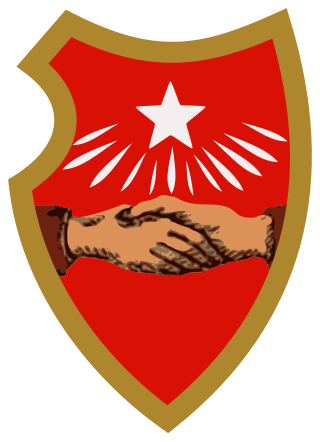
The Independent Social Democratic Party of Germany was a short-lived political party in Germany during the German Empire and the Weimar Republic. The organization was established in 1917 as the result of a split of anti-war members of the Social Democratic Party of Germany (SPD), from the left of the party as well as the centre and the right. The organization attempted to chart a course between electorally oriented reformism on the one hand and Bolshevist revolutionism on the other. After several splits and mergers, the last part of the organization was terminated in 1931 through merger with the Socialist Workers' Party of Germany (SAPD).

International Communists of Germany was a Communist political grouping founded in November 1918 during the German Revolution. The small party was, together with the better known Spartacist League, one of the constituent organizations that joined to form the Communist Party of Germany in 1918.

The Bremen Council Republic, also referred to in English as the Bremen Soviet Republic, was an unrecognised revolutionary state in Germany formed in the immediate aftermath of the First World War. Although not formally declared until 10 January 1919, the regime it represented presided in the industrial-port city of Bremen from 14 November 1918 until its suppression on 2 February 1919 by army and irregular forces engaged by the government of the new German Republic in Berlin.
Karl Plättner was a German communist, militant social revolutionary and author.
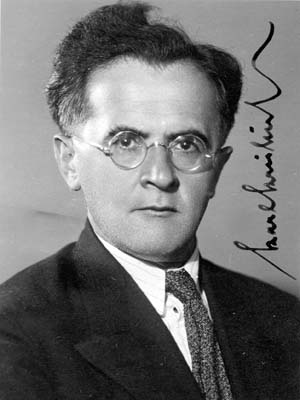
Karl Kreibich, also known as Karel Kreibich, was a Sudeten German communist politician and author in Czechoslovakia. Kreibich emerged as the main leader of the revolutionary socialist movement amongst German workers in Bohemia after the First World War. He was a leader of the Communist Party of Czechoslovakia and a functionary of the Communist International. During the First Czechoslovak Republic, he was elected to parliament thrice. During the Second World War he was part of the exiled Czechoslovak State Council, based in London. After the war he served as Czechoslovak ambassador to the Soviet Union.












